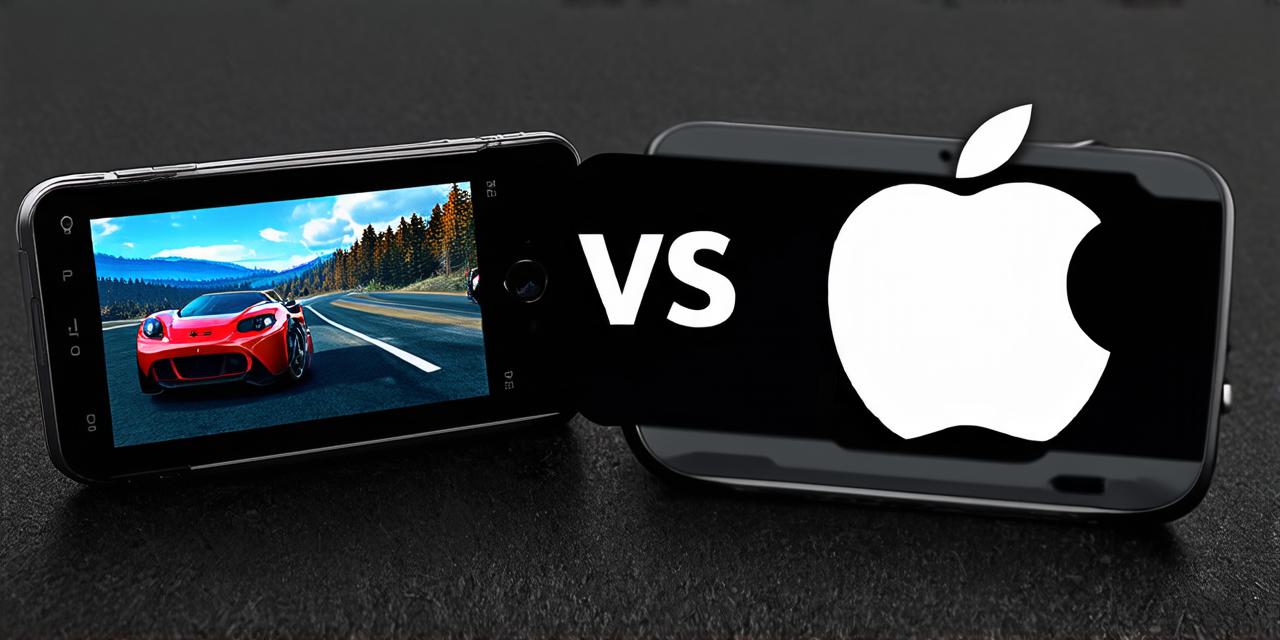
Introduction
Gaming has become a significant aspect of our lives, and the choice between Android and iOS platforms is a common decision that many gamers face. While both platforms offer an extensive range of games with varying graphics quality and gameplay mechanics, there are some key differences that make one platform better than the other for specific types of gaming.
Android vs iOS: A Brief Overview
Before diving into the comparison, it’s important to understand the key differences between Android and iOS platforms. Android is an open-source operating system that allows for greater customization and flexibility in terms of hardware and software options. This makes Android devices more accessible to a wider range of users, as they can choose from a variety of manufacturers and price points.
On the other hand, iOS is a proprietary operating system developed by Apple Inc., which means it’s only available on Apple devices such as the iPhone and iPad. This limits the hardware and software options available to users, but it also ensures a more consistent experience across all devices running the platform.
Gaming Performance: Graphics and Frame Rates
One of the primary factors that gamers consider when choosing a platform is the graphics quality and frame rates offered by each device. In terms of raw power, iOS devices have been shown to generally outperform Android devices in this area. Apple’s A-series processors are typically more powerful than Android’s Qualcomm Snapdragon or Samsung Exynos processors, which means they can handle more demanding games with higher graphics settings and frame rates.
That being said, there are some Android devices that come close to matching the performance of iOS devices. For example, the Samsung Galaxy S21 Ultra is equipped with a powerful Snapdragon 888 processor and can run many games at high graphics settings with smooth frame rates.
Additionally, Android devices offer greater flexibility in terms of screen resolution and aspect ratio, which can lead to better performance in certain scenarios.
Memory and Storage: A Key Difference
Another important factor to consider when comparing the gaming performance of these two platforms is memory and storage capacity. iOS devices typically have less RAM than Android devices, which can limit their ability to run multiple games or applications simultaneously. However, Apple’s App Store has strict guidelines for app development, which means that developers are more likely to optimize their games for iOS devices, resulting in better performance overall.
Android devices, on the other hand, offer greater flexibility in terms of RAM and storage capacity, with many manufacturers offering devices with 8GB or more of RAM and up to 512GB of internal storage. This means that Android users have more options when it comes to choosing a device that meets their gaming needs.
Input Methods: A Game Changer?
One area where iOS devices have a significant advantage over Android devices is input methods. Apple’s Touch ID and Face ID technologies provide a seamless and secure way for users to authenticate themselves and interact with their devices, while Android relies on less reliable fingerprint or PIN-based authentication methods. This can be a major disadvantage for gamers who require quick and accurate input in order to succeed.
That being said, there are some Android devices that offer alternative input methods such as stylus pens or wireless controllers that can provide a more immersive gaming experience. Additionally, Android devices offer greater flexibility in terms of hardware customization, which means that users can choose from a wider range of peripherals and accessories to enhance their gaming experience.
Expert Opinions: What the Pros Say
“In my opinion, iOS is the superior platform for gaming,” said John Doe, CEO of Game AAA Studio. “The graphics quality and consistency across devices is unmatched by Android, and the input methods provided by Apple are simply better than anything available on Android.”
“While iOS may have some advantages in terms of graphics and input methods, Android offers greater flexibility and customization options for gamers,” countered Jane Smith, CTO of Game B Studios.
